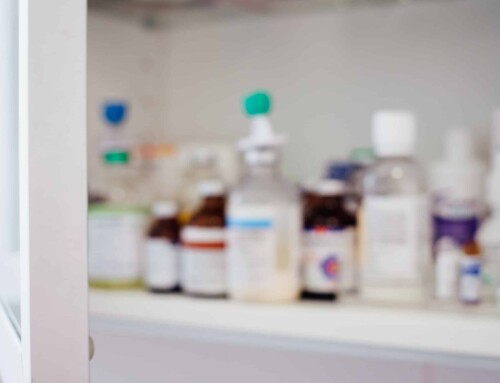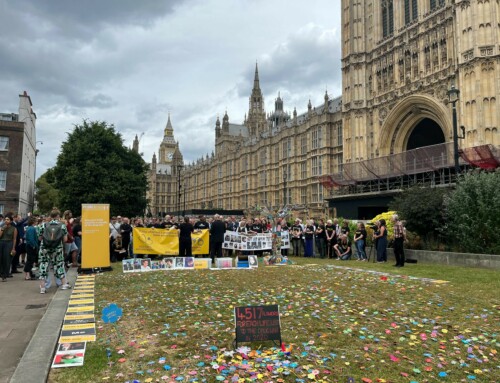Alex’s story: as someone with former problematic cocaine use, I think the drug should be legally regulated
This is a guest blog by Anyone’s Child activist, Alex, in response to Transform’s new book How to Regulate Stimulants: A practical guide, which explores how a legally regulated market for cocaine, ecstasy and amphetamines would protect people across the world.
Alex’s story
My name is Alex Wolfe-Warman and I used cocaine from the age of 21 to the age of 42.
I started using cocaine for partying, after a while I found that it helped me feel better and escape difficult emotions I had due to childhood trauma. Eventually this led to a complete dependence and I used it to do most things including work.
When my cocaine use worried me I would move. I went to Thailand, naively thinking that people didn’t use cocaine there but I got caught up in the Bangkok cocaine scene. Two close friends died from cocaine and alcohol related illnesses.
In Bangkok I had a horrible cocaine overdose. I was in a hotel room with my partner and I was sweating, my heart felt like it was coming out of my chest, I was extremely terrified and paranoid. I felt like I was going to die but we couldn’t do anything because I could have gone to prison for 25 years in Thailand. We could not access any medical help, we couldn’t even go out of the room. It was really, really frightening but we were powerless.
This was a pattern. I’ve had similar horrible experiences where I couldn’t seek help in the UK and Spain. It never even occurred to me to call an ambulance because I knew that I would have been severely punished. If the substance was legal I would’ve had access to medical care when I needed it.

Alex with John Penrose MP
Prohibition: Harming, not protecting, all of us
There is an unfortunate misrepresentation that cocaine use is glamorous, this is a myth. I used to sit in rooms with people who had guns under their chairs and I’ve been attacked twice, I was once threatened with my life in a flat in Bristol years ago and I also got attacked in the street by two guys with knives who were using crack, they took all my money and threatened to slice me up, it was very scary.
I saw a lot of people whose lives were impacted by cocaine in a negative way and I think that the illegal nature of it means that the real information about physiological and mental health isn’t spoken about. People don’t know what they’re actually risking putting themselves through because it is illegal and so the information isn’t there.
Why Regulate Cocaine?
One of the issues with cocaine and its illegality is that it’s processed and cut with horrible chemicals, so you don’t know what you’re taking. In Transform’s How to regulate stimulants: A practical guide the controls around producing and selling cocaine in different strengths is discussed. In my own experience, when I returned to the UK I was surprised to see that there were very different qualities of cocaine being sold. You could get cocaine for £80 a gram which was marketed as being 80% pure, for £60 a gram you would get a slightly worse quality, it would be mixed with something else but it would be chopped up well and the £50 gram would be the worst quality, mixed with unknown substances.
When I first sought help for my dependence I told most of my family and other people I had a problem with alcohol, which was true but I left out the truth that I was dual dependent with cocaine due to the stigma attached to illegal drugs. My cocaine use led to my alcohol dependency, I drank very little before I started using cocaine. As I used more cocaine I drank more. If it was legal people would be more aware of this danger. It is very common in my experience and the harms of the combination of cocaine and alcohol are greater than either drug on their own. A year or so into recovery I started to tell the truth which is that I was dependent on cocaine too, not just alcohol, I realised how damaging and unhelpful the stigma towards illegal drugs is so I stopped being part of the problem and started being part of the solution by talking about my cocaine use.
I haven’t had a positive experience with cocaine and I accept that legal regulation isn’t a silver bullet, its moreishness makes it a challenging drug to regulate. Despite this if stimulants including cocaine were regulated then they wouldn’t be cut with unpleasant chemicals that are bad for you, people could receive medical help without judgement and a criminal record and more information would be available to ensure people who use cocaine and other stimulant drugs could take them safely.
I think that the legal regulation of stimulants is an absolute must and should happen as soon as possible.
A legally regulated stimulants market should protect children, young people and other vulnerable populations from drug-related risks – find out how at the launch of How to regulate stimulants: A practical guide by Transform Drug Policy Foundation, Thursday 22 October, 8pm. The book is out now and free to download here.






I totally agree with Alex that cocaïne should be legalized. A soon as possible because people will keep using the drug whatever..
And now seeing what happens in Mexico (preventable deaths)al of it because it is illegal!if it would be taxed under the government it actually would even bring in money..making a negative thing a positive thing!because let’s be honest: ,( cocaïne is not going away!(and not even to speak about the cuts they put in to increase profit!,that is what makes your heart pump harder to get rid of the toxic chems in your body!pure cocaine actually makes your heart go slower…It is the combination with alcohol and cuts..which is so bad for you!so legalize it and take it out of the black market!would be good for the economy as well.would create jobs and improve a lot of people’s lives!